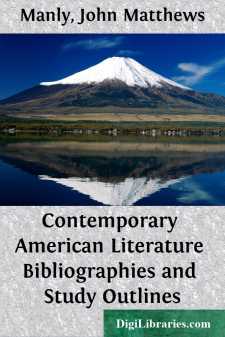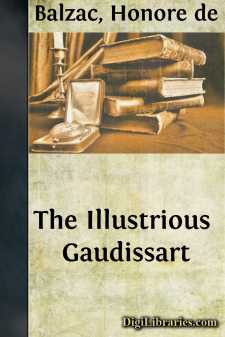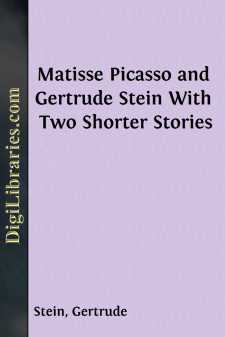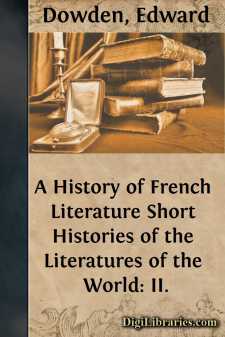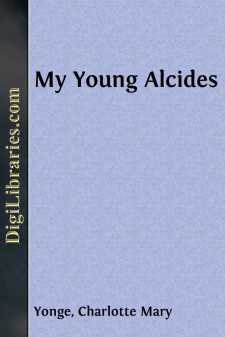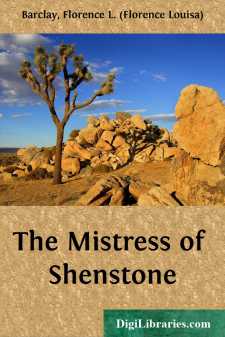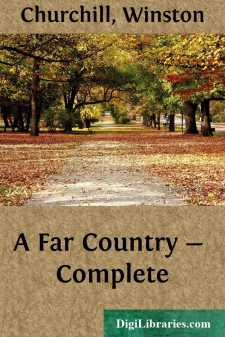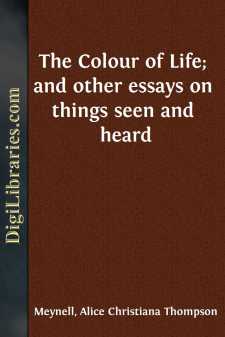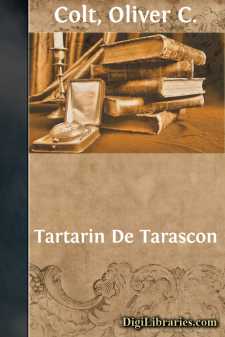Literary Collections
- American 84
- Ancient, Classical & Medieval 14
- Asian 1
- Australian & Oceanian 1
- Canadian 55
- Continental European 121
- English, Irish, Scottish, Welsh 179
- Essays 160
- General 24
- Letters 46
- Middle Eastern 1
Literary Collections Books
Sort by:
HOW TO USE THIS BOOK This book is intended as a companion volume to Contemporary British Literature; but the differences between conditions in America and in England have made it necessary to alter somewhat the original plan. In America today we have a few excellent writers who challenge comparison with the best of present-day England. We have many more who have been widely successful in the business...
more...
by:
Honore de Balzac
CHAPTER I The commercial traveller, a personage unknown to antiquity, is one of the striking figures created by the manners and customs of our present epoch. May he not, in some conceivable order of things, be destined to mark for coming philosophers the great transition which welds a period of material enterprise to the period of intellectual strength? Our century will bind the realm of isolated...
more...
by:
Gertrude Stein
When they are very little just only a baby you can never tell which one is to be a lady. There are some when they feel it inside them that it has been with them that there was once so very little of them, that they were a baby, helpless and no conscious feeling in them, that they knew nothing then when they were kissed and dandled and fixed by others who knew them when they could know nothing inside...
more...
by:
Edward Dowden
PREFACE French prose and French poetry had interested me during so many years that when Mr. Gosse invited me to write this book I knew that I was qualified in one particular—the love of my subject. Qualified in knowledge I was not, and could not be. No one can pretend to know the whole of a vast literature. He may have opened many books and turned many pages; he cannot have penetrated to the soul of...
more...
CHAPTER I. One of the children brought me a photograph album, long ago finished and closed, and showed me a faded and blurred figure over which there had been a little dispute. Was it Hercules with club and lion-skin, or was it a gentleman I had known? Ah me! how soon a man's place knoweth him no more! What fresh recollections that majestic form awoke in me—the massive features, with the...
more...
CHAPTER I ON THE TERRACE AT SHENSTONE Three o’clock on a dank afternoon, early in November. The wintry sunshine, in fitful gleams, pierced the greyness of the leaden sky. The great trees in Shenstone Park stood gaunt and bare, spreading wide arms over the sodden grass. All nature seemed waiting the first fall of winter’s snow, which should hide its deadness and decay under a lovely pall of...
more...
My name is Hugh Paret. I was a corporation lawyer, but by no means a typical one, the choice of my profession being merely incidental, and due, as will be seen, to the accident of environment. The book I am about to write might aptly be called The Autobiography of a Romanticist. In that sense, if in no other, I have been a typical American, regarding my country as the happy hunting-ground of...
more...
THE COLOUR OF LIFE Red has been praised for its nobility as the colour of life. But the true colour of life is not red. Red is the colour of violence, or of life broken open, edited, and published. Or if red is indeed the colour of life, it is so only on condition that it is not seen. Once fully visible, red is the colour of life violated, and in the act of betrayal and of waste. Red is the...
more...
by:
Oliver C. Colt
Introduction. The tale of Tartarin de Tarascon was written by Alphonse Daudet in 1872, and was one of the many works which he produced. In it he pokes gentle fun at a type of Frenchman who comes from the Midi, the area where he himself was born. Tartarin has characteristics which may remind the English-speaking reader of Toad of Toad Hall, a boastful braggart, easily deceived, but good-hearted au fond....
more...
by:
William Carleton
CHAPTER I. One evening in the beginning of the eighteenth century—as nearly as we can conjecture, the year might be that of 1720—some time about the end of April, a young man named Lamh Laudher O'Rorke, or Strong-handed O'Eorke, was proceeding from his father's house, with a stout oaken cudgel in his hand, towards an orchard that stood at the skirt of a country town, in a part of the...
more...


